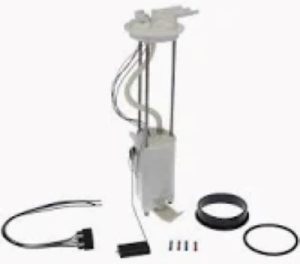Aftermarket fuel pumps can be reliable, but their quality is all over the place, depending on the brand and manufacturing standards. Take, for instance, the reputable aftermarket brands: they design fuel pumps to meet and even exceed OEM specifications, usually offering quite competitive performance at a lower price point. Reliable aftermarket fuel pumps range in cost from $50 to $200, making them a very attractive option when compared to an OEM pump, which would cost as much as 50% higher. In aftermarket options, however, this is where one must make sure the specifications of the pump-match flow rate and pressure among others-lies within the call of the vehicle to avoid performance issues.
Performance often depends on the quality control in manufacturing. Major brands in the aftermarket industry, such as Bosch and Delphi, keep strict quality standards, hence their fuel pumps perform by giving consistent pressure and durability similar to OEM's. Many mechanics would recommend these brands, as they work well in both standard and high-performance applications. However, lower-quality aftermarket brands, mostly below $50 in price, sacrifice this build quality since it would lead to premature wear or inconsistent fuel delivery, actually cutting the pump's life up to 30%.
High-performance or tuned-engined cars may need more specialized pumps, where many aftermarket brands have products for just this market. For example, some Walbro fuel pumps are designed for higher pressures and flows to help meet the requirements of a modified engine. Some aftermarket fuel pumps offer as much as 255 liters per hour or more for racing and high-output applications to satisfy the demands of turbocharged or supercharged engines. These high-output pumps can improve fuel efficiency and responsiveness, thereby making them quite reliable for performance-oriented drivers, according to automotive performance reviews.

The second important factor in ensuring the reliability of an aftermarket replacement fuel pump is the warranty. Most aftermarket brands will have some kind of warranty that covers defects or malfunctions that could take place, similar to OEM warranties. This warranty decreases the risk for a driver who might be concerned about the quality of his purchase. The warranty period ranges between one and three years. According to the Consumer Reports, afterwards pumps with a minimum of one-year warranty did perform better, where fewer than 10% of owners reported any problems in the first two years of ownership.
Furthermore, one must consider installation cost when evaluating the overall reliability issues of the aftermarket pump. Installation of a fuel pump requires expertise, and such installations cost on average between $200 and $300 per vehicle. A well-built aftermarket fuel pump would avoid the additional cost related to frequent replacement or repair.
Eventually, quality replacement fuel pumps from quality aftermarket sources can be a reliable option for many owners-drivers since most of them match or even outperform OEM standards in terms of performance, savings, and durability. However, long-term reliability can be expected only by choosing trusted brands and making sure the installation is properly done. For more on the subject of aftermarket options and specifications with respect to performance, see Fuel Pump.